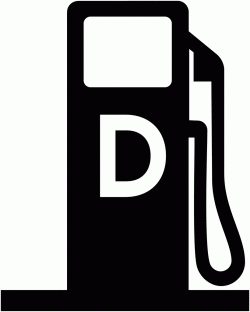You probably won’t remember a time when diesel was cheaper than petrol in the UK. It was 1990 when the tables turned.
Over the last 15 years, diesel has averaged 4.3 pence per litre more than unleaded petrol. At the peak of the price gap – in 2008, garages charged a whopping 15 pence per litre more for diesel!
So why the difference when both diesel and petrol are made from the same feedstock, via the same process, by the same industry?
The mystery deepens when you look at UK wholesale prices for each fuel. There’s very little difference most of the time. At the bulk distribution point, sometimes diesel is actually cheaper than petrol – most recently in November last year.
So why the price premium for diesel?
Market forces seem to hold the key. Diesel dominates the UK road fuel market because, although petrol cars still outnumber all diesel vehicles on the road, diesel-powered commercial fleets use a far greater volume of fuel per vehicle.
Last year (2017), the total volume of diesel consumed in the UK was 30 billion litres compared with 16.5 billion litres of petrol.
Since commercial fleets’ mileage is almost entirely non-discretionary, the fuel companies have a degree of pricing leverage with diesel. On the other hand, large commercial fleet operators can and do negotiate price rebates of 2 pence or more per litre. The baseline for these volume-related discounts is often the national average retail price. So the fuel supply business tries to maintain a decent margin between wholesale and retail diesel prices. Otherwise rebates would eat away their profits.
This pricing dynamic does not apply nearly as strongly to petrol, where there are few big-volume corporate buyers. Private drivers can also cut down on non-essential trips if they feel fuel is getting too pricey.
And diesel car drivers are probably more tolerant of a higher price point for their fuel because they expect to get better mpg than they would from petrol.
Therefore there’s every incentive for fuel producers and retailers to put a higher price sticker on diesel at the pumps.
Supermarket fuel sites, which take the lion’s share of the UK’s retail fuel volume, often sell petrol on a barely-visible margin to keep drivers loyal to their brand. By selling diesel at a premium over petrol, they earn enough profit to ensure their forecourts don’t become actual loss-leaders for the grocery side of the business.
So, everyone who drives a diesel is, to some extent, subsidising drivers of petrol cars.
But since a diesel’s fuel pence-per-mile cost is invariably lower than a petrol vehicle’s, it’s probably not worth losing sleep over.


